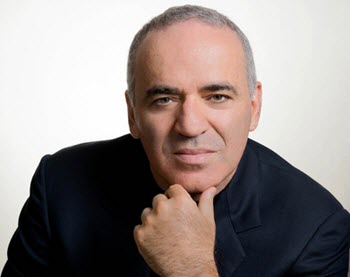Known as “the game of kings”, chess is a tactical board game that is believed to date back to the 7th century, with its origins being in India. The game is derived from other earlier games, namely chaturanga, which was likely developed from Eastern strategy games like shogi, janggi and xiangqi. Chess is played on a board consisting of 64 squares, set out in an 8×8 grid. Each player has 16 pieces, consisting of:
- 8 pawns
- 2 bishops
- 2 knights
- 2 rooks
- 1 queen
- 1 king
The goal of chess is to get checkmate, which wins the game. When the opposing player’s king is under threat, referred to as check, then the game is won if the opponent’s king cannot move to another square on the board that isn’t under threat (checkmate). This can be because all surrounding squares are under threat or it could be that that they are already occupied, effectively blocking the king in. Learn to play chess here.
The chess board has a chequered pattern and one player’s pieces are white, while the other player’s pieces are black. White always begins the first game, so there is a slight statistical advantage here. Chess can be played purely for fun with a partner or at a chess club. However, it is widely enjoyed as a competitive game, played in national and international tournaments. The best players in the world are called grand masters. Examples of grand masters include Bobby Fisher and Garry Kasparov.
What are the Benefits of Playing Chess?
There are many benefits of playing chess, aside from the entertainment provided to the player. These benefits include:
- Raising your IQ – Some studies have shown a direct link between playing chess and raising your IQ over a period of time. This is likely due to the challenging, tactical and problem-solving nature of the game of chess, stimulating the production of dendrites, which conduct brain signals.
- Keeping your brain healthy – People who are over the age of 75 are less likely to develop mental health conditions like dementia and Alzheimer’s.
- Boosting your creativity – Chess gameplay helps to boost your creativity by activating the right side of your brain.
- Improved memory – Being a good chess player often has an element of remembering the moves and tactics of players that you have played before. However, no matter what the mechanism is, people who play chess have been shown to have an improved memory and better organisational skills.
- Improves planning skills – Playing chess develops the pre-frontal cortex of the brain, which is the part of the brain that is responsible for judgement, planning and self-control. So, playing chess and other strategy games will help you to make better life decisions.
- Make Money – You can make money playing chess. All players can make money. There are sites online that allow you to play chess for money. These sites work in a similar way to online casino sites but does not force you to rely on luck to win money. Some of the sites offer you a bonus if you start playing just like casino sites offer bonuses. You can win money by simply being a better player than your opponents. Make sure to always chose opponents you can win against.
Where to Play Chess
You can play chess at home with a friend or over the internet using your smartphone, laptop or PC. However, you can greatly improve the enjoyment aspect and learning aspect by joining a chess club. A chess club allows you to learn from other, more experienced players and will give you an opportunity to play in a more competitive setting, if you should so desire. If you get good enough, you could even compete in a tournament.


